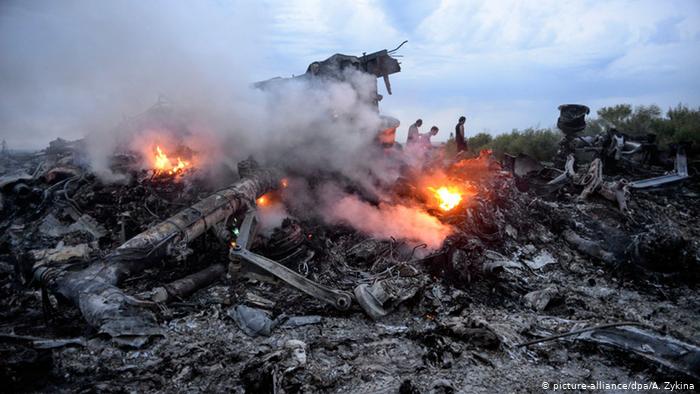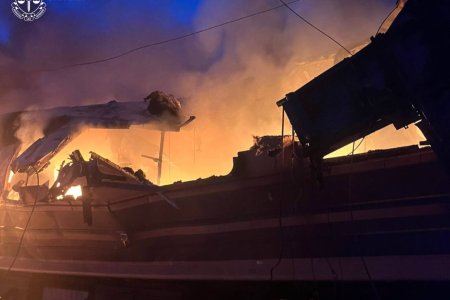
The European Court of Human Rights has refused to examine Russia’s inter-state application against Ukraine, in which Moscow claimed, among other allegations, that Ukraine was to blame for the downing of Malaysian airliner MH17 by a Russian BUK missile because it hadn’t closed its airspace. This was not the only extraordinary claim set out in Russia’s application from July 2021, but it was probably a major part of its motivation in turning to the Court. Russia had asked that its application be added to the Case of Ukraine and the Netherlands v. Russia, which is, to a large degree, over Russia’s role in the downing of MH17 on 17 July 2014, and killing of all 298 adults and children on board. There was probably never any likelihood that the Court would blame Ukraine, rather than the country which provided the BUK missile launcher and controlled the Russian / pro-Russian militants. ECHR does, however move slowly and the addition of Russia’s absurd application would have delayed the Court’s judgement still further.
As reported, Russia’s Prosecutor General’s Office announced its inter-state application against Ukraine on 22 July 2021. This was five days after the seventh anniversary of MH17 and seven months before Russia’s full-scale invasion of Ukraine led to its expulsion from the Council of Europe and withdrawal from the European Convention on Human Rights (and, accordingly, ECHR).
The list of ‘complaints’ was very long, with some of them demonstrably false, such as the allegation that the death of 42 pro-Russian activists during the Odesa 2 May riots was ‘an arson attack’. A number of others were taken straight from Russian propaganda claims since 2014, and almost certainly false. Then there was the attempt to blame Ukraine for the death of the 298 passengers and crew of MH17. In fact, neither Ukraine, nor the countries flying over occupied Donbas, had stopped flights as nobody realized that Russia would provide a missile launcher capable of reaching planes flying 10 kilometres above ground.
The other claim was of comparable cynicism. After invading and illegally annexing Crimea in 2014, Russia complained that Ukraine had cut off the supply of water from the Dnipro River to Crimea while it remained under Russian occupation. Even before Russia’s full-scale invasion, there had been warnings that Russia might resort to military force to obtain access to Ukrainian water which the Russian occupiers could not, otherwise, provide.
Together with its main application, Russia also asked ECHR to apply Rule 39 and impose interim actions, with these having included the re-opening of the Northern Crimean Canal whose flow of water had been stopped in April 2014. ECHR immediately rejected any grounds for such application of Rule 39 and Russia’s subsequent appeal against that decision.
Russia had already flouted very many ECHR orders under Rule 39, not least with respect to its treatment of the Ukrainian political prisoners it is holding. All of this, however, became even more dramatically evident in 2022, after Russia’s full-scale invasion of Ukraine. It is no accident that the Court’s ruling, published on 18 July 2023, begins with an account of Russia’s failure to respond to requests from the Court since its cessation of membership of the Council of Europe. As reported here, Russia is also ignoring, and attempting to override, a direct decision from ECHR ruling that it has jurisdiction over all applications against Russia laid before 16 September 2022.
The Court’s decision to strike out Russia’s interstate application is explained as linked with Russia’s failure to respond to its requests for information, etc. The Court does, however, point out that there are occasions where the Court would continue regardless because of an application’s importance in the context of respect for human rights. It finds no such grounds in this case. It also points out, with respect to many of Russia’s allegations that the alleged victims of such supposed violations by Ukraine remain perfectly free to lodge their own applications with the Court.
It is not clear why Russia has not responded to ECHR’s communications. One reason may be that since it is falsely claiming that the Court’s jurisdiction ended on 16 March 2022, it does not want to now be seen to be continuing to work with the Court. Another reason, however, may be that Russia’s real motive for the application had always been to have it joined to the inter-State case of Ukraine and the Netherlands v. Russia. ECHR knocked this down back on 19 October 2021 when the Grand Chamber “decided to reject the request on the basis that accepting it would not be in the interests of the efficient administration of justice”. It is precisely the efficient administration of justice with respect to the application from Ukraine and the Netherlands that Russia has every reason to wish to block.



